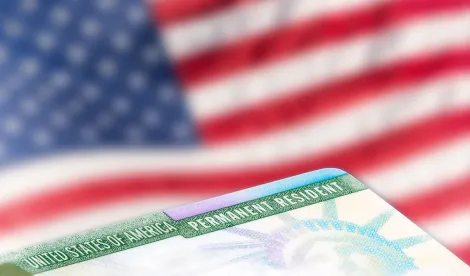On March 31, 2023, U.S. Citizenship and Immigration Services (USCIS) permanently removed the requirement that U.S. civil surgeons sign Form I-693, Report of Immigration Medical Examination and Vaccination Record, no more than 60 days before submission of Form I-485, Application to Register Permanent Residence or Adjust Status. USCIS first waived this requirement on a temporary basis beginning Dec. 9, 2021, due to the COVID-19 pandemic; the waiver had been continuously in effect since that date.
This change aims to ease burdens surrounding the multi-step process of filing a green card application, which process includes attending an immigration medical examination at a U.S. civil surgeon’s physical office and submitting the sealed examination results to USCIS along with the Form I-485, Adjustment of Status application.
Currently, applicants are not required to submit the medical Form I-693 concurrently with Form I-485. However, USCIS recently encouraged concurrent submission of Forms I-693 and I-485 to streamline the green card process and reduce processing times by eliminating the need for USCIS to issue a Request for Evidence (RFE) to obtain Form I-693.
Green card applicants should note that USCIS has not eased the rule stating that Form I-693 is only valid for two years from the date of the civil surgeon’s signature. Therefore, if USCIS has not adjudicated Form I-485 within the two-year time frame, an applicant may still receive an RFE requesting an updated Form I-693. Therefore, because Form I-485 processing times remain long, applicants should consider completing the immigration medical examination closer to the time they file Form I-485 in order to minimize the chance of needing a new Form I-693.
When planning to complete the immigration medical examination, applicants should also budget sufficient time for any laboratory testing or additional testing required under the Technical Instructions for Civil Surgeons from the Centers for Disease Control and Prevention.
Form I-693 is an important part of the green card application process, as USCIS uses it to establish whether an adjustment of status applicant would be considered inadmissible to the United States on public health grounds. By easing restrictions around the completion of Form I-693, USCIS hopes to save time for applicants waiting to become lawful permanent residents, although it is too early to know if this measure will be effective.



 />i
/>i

